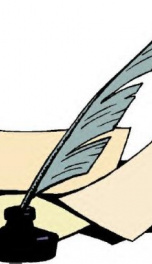Foster's Letter Of Marque

One by one the riding-lights of the few store-ships and whalers lying in Sydney Harbour on an evening in January, 1802, were lit, and as the clear notes of a bugle from the barracks pealed over the bay, followed by the hoarse calls and shrill whistles of the boatswains' mates on a frigate that lay in Sydney Cove, the mate of the _Policy_ whaler jumped up from the skylight where he had been lying smoking, and began to pace the deck. The _Policy_ was anchored between the Cove and Pinchgut, ready for sea. The north-easter, which for three days had blown strongly, had now died away, and the placid waters of the harbour shimmered under the starlight of an almost cloudless sky. As the old mate tramped to and fro on the deserted poop, his keen seaman's eye caught sight of some faint grey clouds rising low down in the westward--signs of a south-easterly coming before the morning. Stepping to the break of the poop, the officer hailed the look-out forward, and asked if he could see the captain's boat coming. "No, sir," the man replied. "I did see a boat a while ago, and thought it was ours, but it turned out to be one from that Batavian Dutchman anchored below Pinchgut. Her captain always goes ashore about this time." Swinging round on his heel with an angry exclamation, the mate resumed his walk, muttering and growling to himself as elderly mates do mutter and growl when a captain promises to be on board at five in the afternoon and is not in evidence at half-past seven. Perhaps, too, the knowledge of the particular cause of the captain's delay somewhat added to his chief officer's ill-temper--that cause being a pretty girl; for the mate was a crusty old bachelor, and had but little sympathy with such "tomfoolery."
Info about the book
Author:
Series:
Unknown
ASIN:
B0082ULQLM
Rating:
4.5/5 (4)Your rating:
0/5
Languge:
English
Users who have this book
Users who want this book
What readers are saying
What do you think? Write your own comment on this book!
write a commentif you like Foster's Letter Of Marque try:
Other books by this author
Do you want to read a book that interests you? It’s EASY!
Create an account and send a request for reading to other users on the Webpage of the book!


